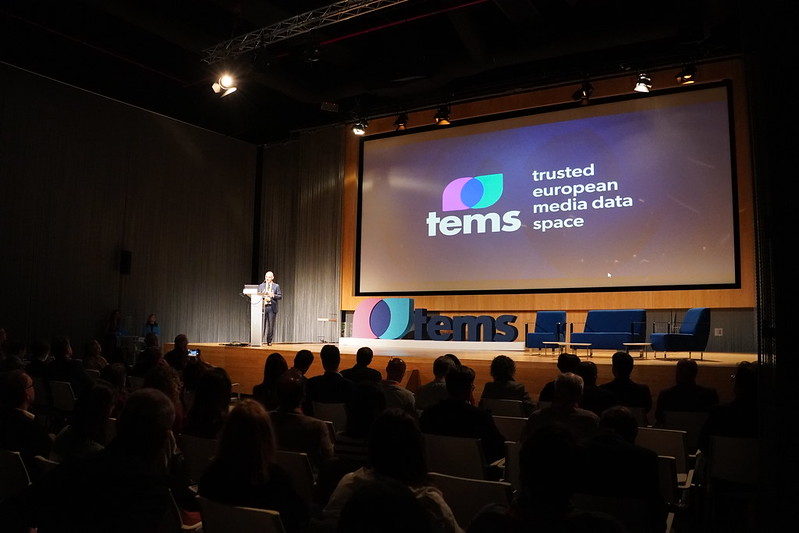
The main objectives of the TEMS project: shaping the future of the media industry
Building a resilient data-driven ecosystem in the media sector is not the end of the road, but the means to achieve important goals within the industry
TEMS is the largest and most important initiative to create and deploy a common European dataspace in the media industry. This project is a direct result of the European Strategy for Data approved by the European Commission in 2020 and is also contemplated in the European Media and Audiovisual Action Plan of the same year. The implementation of this data space, however, is not the ultimate goal of the project, but the means to create a more competitive, sustainable, and intertwined media industry.
We take a look at the specific objectives that the TEMS project aims to achieve, always aligned with the goals of the Digital Europe programme:
Articulate and deploy a safe and trusted data space
Needless to say, the first objective of the project is to articulate and deploy a common data space that allows stakeholders to share and access data in a mutually advantageous way and in compliance with data protection legislation. Currently, the media industry faces serious challenges when it comes to processing and sharing data and an effort needs to be made to overcome the “one data, one use” mindset. TEMS will facilitate the exchange and storage of data, so none is lost during the production process of an audiovisual work. Besides, as an initiative that brings together a wide range of high-level players (43 partners from 11 different countries) it will be easier to establish protocols and common practices that build trust and interoperability. This will help enhancing the quality of audiovisual works and the efficacy on their management.
Promote the growth of data providers
One of the main requirements for the effective functioning of the data space is, obviously, the existence of said data. The infrastructure that TEMS aims to develop is fundamental for the future of the project, but it is just as necessary to encourage the creation of a data culture so that media companies are able to generate quality data that can be appropriately processed and shared. In pursuing this objective, it is necessary to consider the deep atomisation that the audiovisual sector faces (99.8% of media companies in Europe are SMEs) and the limitations that local media usually has, both in access to funding and in reacting to socio-economic changes.
Facilitating the establishment of digital partnerships
Promoting the establishment of industrial agreements between media companies, as well as with other digital stakeholders, is essential to strengthen the MDVC (Media Data Value Chain) and ensure the future of the TEMS project. Globalisation and technological advances allow the creation of synergies between industry players and even with other creative industries, such as cultural heritage, filmmakers, or advertisers. It is very important to implement collaborative business models that help overcome the “one partner, one project” mindset and help breaking down the closed data silos, so companies can freely access to data from various stakeholders.
Enhance the capacity and competitiveness of SMEs
The European media industry is dominated by SMEs. However, despite 99.8% of the media companies being SMEs, half of the total turnover is actually driven by the large industry. To increase the competitiveness of SMEs in terms of data management and distribution, it is essential to lower the cost and difficulties to establish and/or participate in media data spaces. In this respect, EDIHs (European Digital Innovation Hubs), which help SMEs to overcome digital challenges and become more competitive, can be of great help. The regional presence of this network is perfect to provide the services that local media companies and SMEs need, while having access to pan-European projects like TEMS and the infrastructures they provide.
Support the adoption of new technologies, like AI or VR
Another very important goal of the TEMS project is to help materialize innovative ideas and turn them into profitable products and services. There are emerging sectors within the industry that are constantly evolving and have an advanced degree of technological development. Sectors such as gaming, which already accumulates an annual revenue of €23.5B, are perfect opportunities to implement and scale lighthouse projects that provide relevant information for the expansion and consolidation of the data space. In addition, TEMS can also contribute to boost and disrupt sectors that are currently more stagnant, like news media, which can benefit from the innovative schemes and technologies applied in cutting-edge sectors.